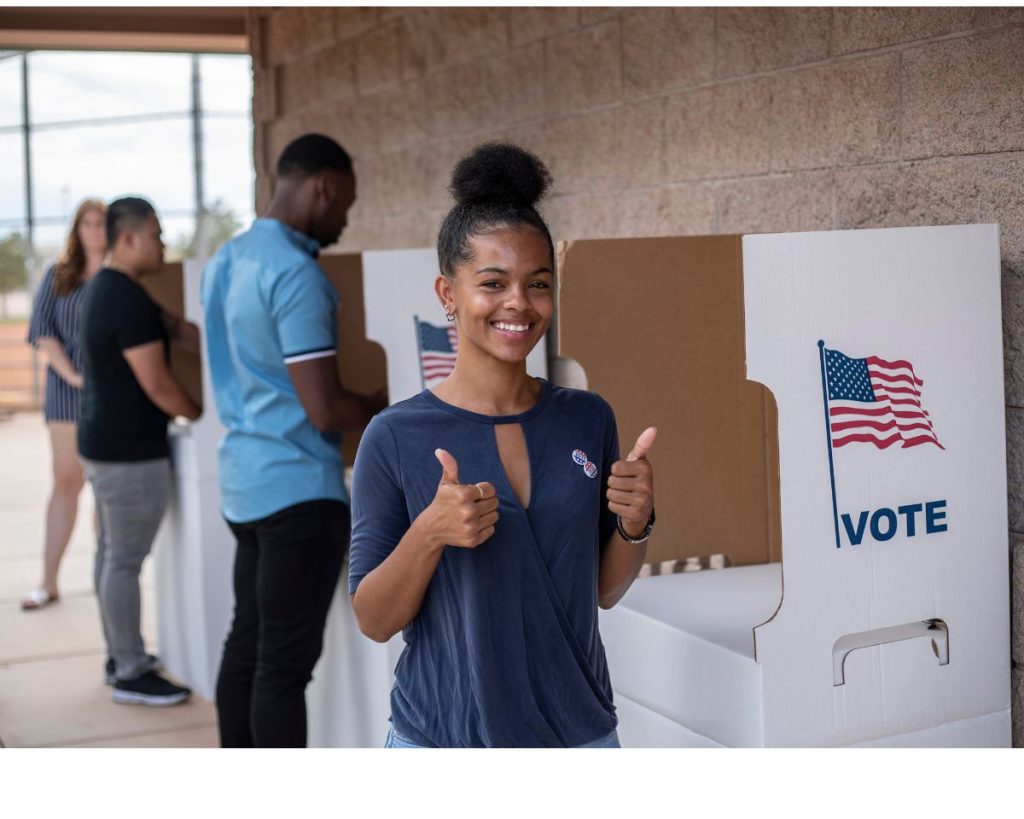Editor’s note: This article was written by students Isaiah Kidane (DSST Byers), Grant Cramer (East High School) Battsetsen Erdenebulgan (Denver School of the Arts), and by Corban Tillerman-Dick, CEO of Maybell Quantum, Liberty Tillerman-Dick, a DPS parent, and Kwame Spearman, an at-large candidate for the Denver school board.
Denver is at a pivotal juncture. As our city expands, its civic spirit, especially among the youth, lags behind.
To ensure our democracy flourishes and captures the aspirations of all its citizens, we advocate an audacious yet informed step: Allow our 16 and 17-year-olds to cast their votes in Denver Public Schools elections.
Skeptics might challenge the wisdom of this move, citing concerns about the maturity and preparedness of our youth. However, one need only step into a DPS classroom to witness firsthand the fervor, passion, and understanding these young minds bring.
Their insights into complex socio-political issues, combined with their fervent advocacy for change, make a compelling case for their active participation in decisions that directly influence their education and future.
During the last academic year, for example, groups like Vote Forward Denver, led students from across the city to plan peaceful protests and marches from campuses to the capital to showcase their frustration with our present politics.
Moreover, we would argue our students demonstrated as much persuasion and civic mindfulness as adults over the past year, as they have peacefully protested and advocated for gun reform and answers to school safety concerns. Their ability to organize and move in these difficult times is nothing short of inspirational.
Yet mere acknowledgment isn’t enough. Denver’s voter turnout, especially among its younger citizens, paints a grim picture. To remedy this, we propose two transformative steps.
First, enfranchise our 16- and 17-year-olds in DPS elections. Such a move isn’t symbolic; it’s about instilling a lifelong commitment to democracy. Take, for instance, places like Takoma Park and Hyattsville in Maryland, where similar initiatives led to increased youth engagement, with young voters often outpacing their older counterparts.
To bolster this engagement further, we advocate for students to pre-register to vote for local, state, and federal elections upon entering high school. Preparing our students goes beyond academics; it’s about priming them for robust civic responsibility.
Central to this vision is the transformation of our educational approach. Enter “Action Civics.”
Traditional civics education, ensnared within textbook pages, is often removed from the tangible experiences of democracy. Action Civics changes that. Through immersive activities like legislative simulations, mock campaigns, and real-world projects, students won’t just study democracy – they will practice it.
We believe the real-life implications of the ability to vote will unearth a level of civic engagement not previously tapped into locally. By seeing the impact they can have on the electoral process, a new type of Denver leader will develop.
Denver isn’t alone in this journey. Student groups like Project VOYCE and the Colorado Youth Congress have already championed the rights of younger voters. And while state-level reforms have encountered resistance, Denver should lead by example.
The last push to allow for 16- and 17-year-olds to vote occurred in 2018. The world has changed significantly since then. And the fact that only 30% of our city voted in the mayoral runoff underscores the need for reform.
Students deserve a voice in the decisions that directly influence their education. They should have a say in curriculum choices, school policies, and the selection of the leaders who shape their educational experiences.
This goes beyond mere representation; it’s about active participation, inclusion, and adaptability. Through this, we cultivate an environment where candidates campaign directly to high school students, address their concerns, and discuss their educational priorities.
Over the fall, we will ask students to come together to be heard on this topic. Many DPS high schools already have student-led political organizations. These groups facilitated many of the protests and engagement during last school year. This year, we hope their mission might be to focus on ensuring their collective voices are not just heard — they are formally counted. And to be clear, if these changes are student led, we believe adults will follow.
Denver’s choice is evident: Sideline our youth or empower them. We urge Denver to take the latter path, for in their voices and votes lies our collective future. Stand with us.




